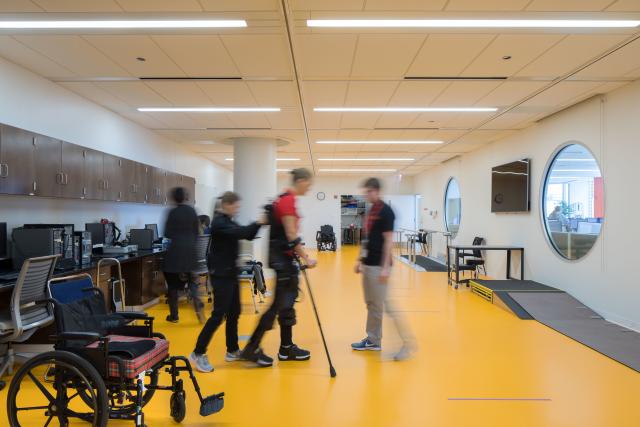Max Näder Center for Rehabilitation Technologies and Outcomes Research
Our Projects
Take a look at a few of the projects we work on everyday.
Research Project
Research Project
Research Project
Research Project
Clinical Trials
Join our research in progress by signing up online to be a study participant.

Evaluation of a Variable Friction Shoe for People with Foot Drop due to Stroke
To evaluate the effect of a variable friction shoe on walking in individuals with chronic stroke and foot drop.
read more
The BO2ST Trial
Walking recovery is a key goal after spinal cord injury (SCI). While some patients experience spontaneous recovery due to preserved neural circuits, many struggle to achieve independent ambulation, and those who do often face persistent deficits. There is growing consensus that a single approach is insufficient to overcome these challenges, prompting the need for combined interventions.
read moreSelected Publications
Automate, Illuminate, Predict: A Universal Framework for Integrating Wearable Sensors in Healthcare
Wearable sensors have been heralded as revolutionary tools for healthcare. However, while data are easily acquired from sensors, users still grapple with questions about how sensors can meaningfully inform everyday clinical practice and research. We propose a simple, comprehensive framework for utilizing sensor data in healthcare. The framework includes three key processes that are applied together or separately to (1) automate traditional clinical measures, (2) illuminate novel correlates of disease and impairment, and (3) predict current and future outcomes. We demonstrate applications of the Automate-Illuminate-Predict framework using examples from rehabilitation medicine. Automate-Illuminate-Predict provides a universal approach to extract clinically meaningful data from wearable sensors. This framework can be applied across the care continuum to enhance patient care and inform personalized medicine through accessible, noninvasive technology.
read more

